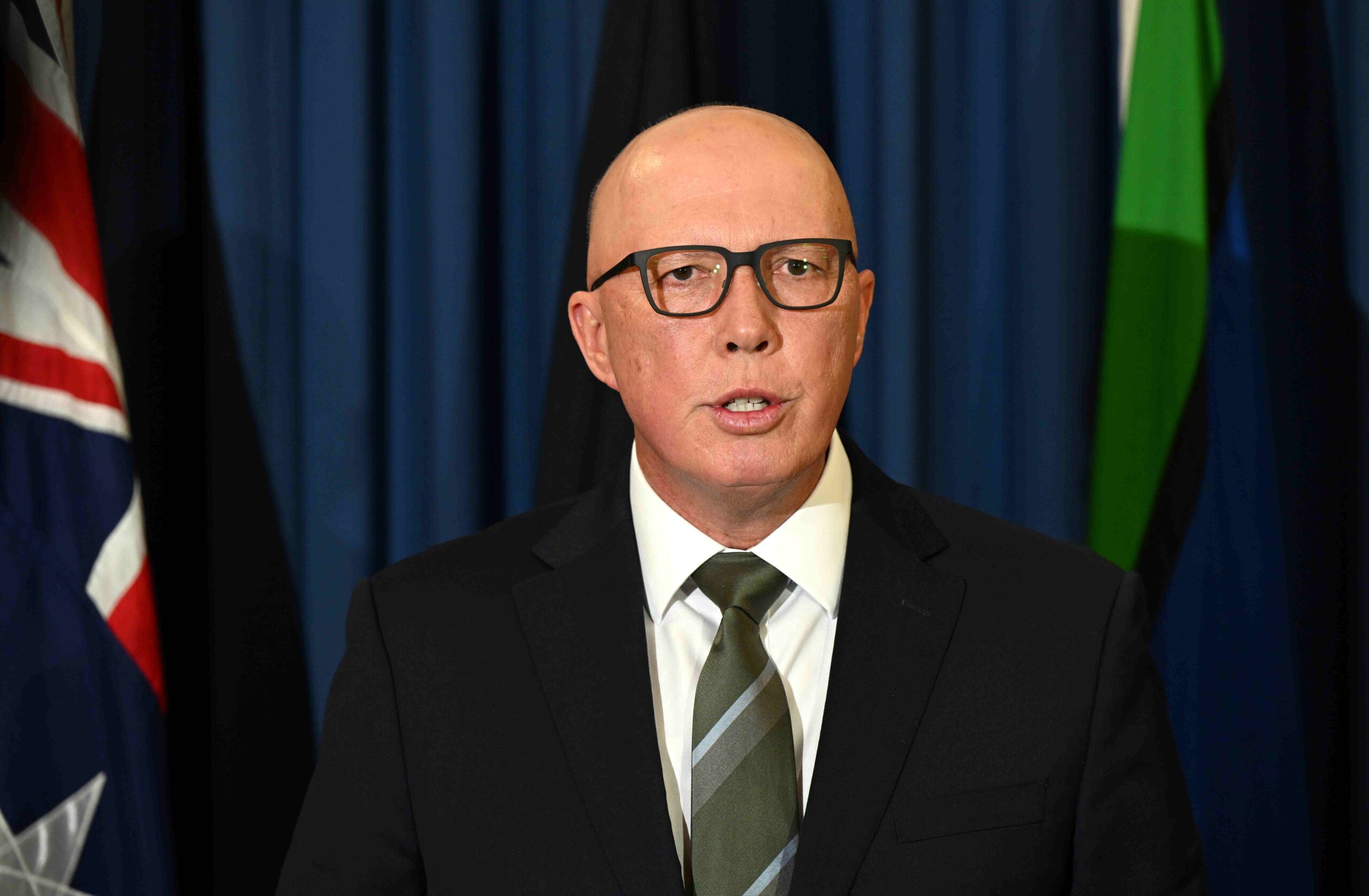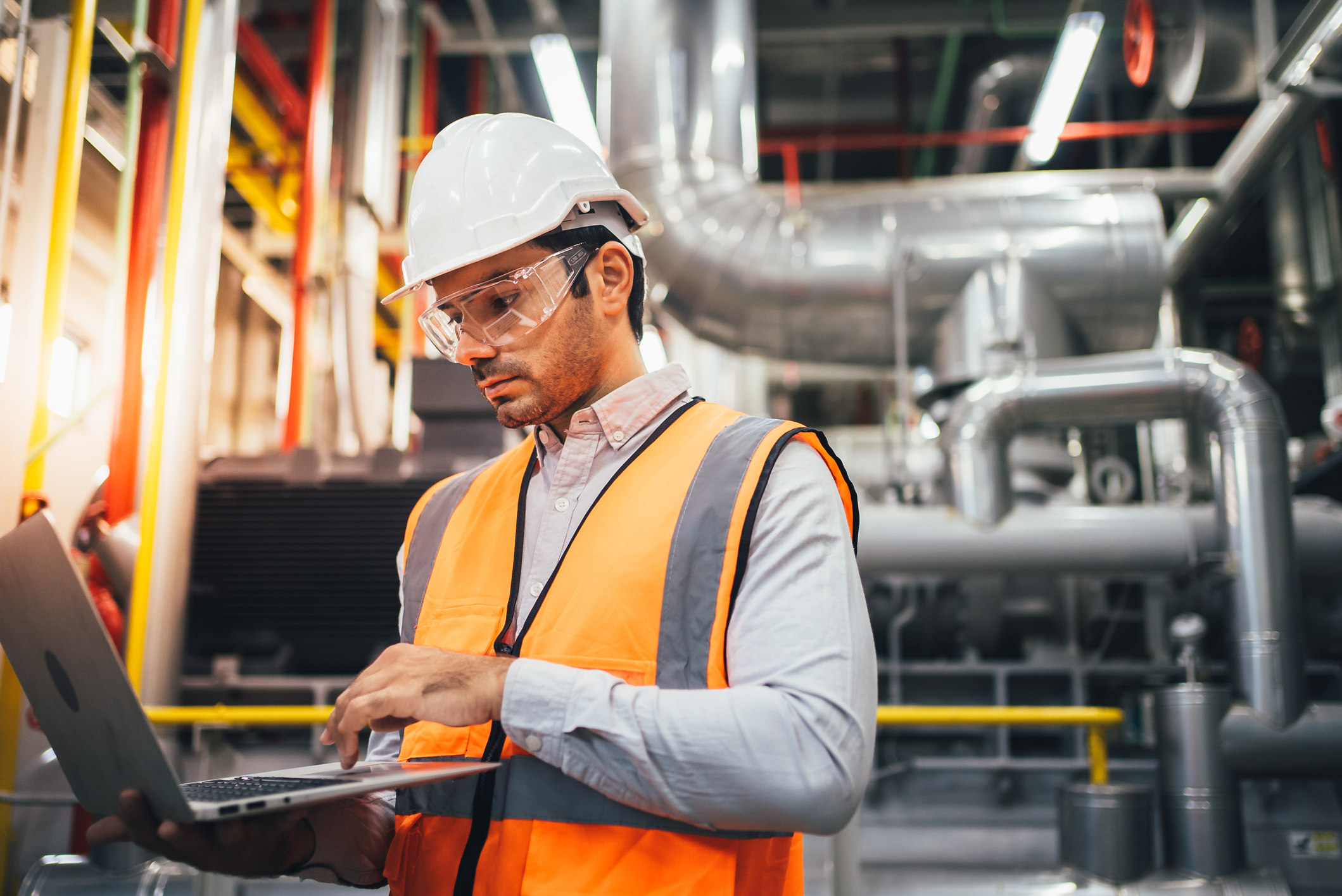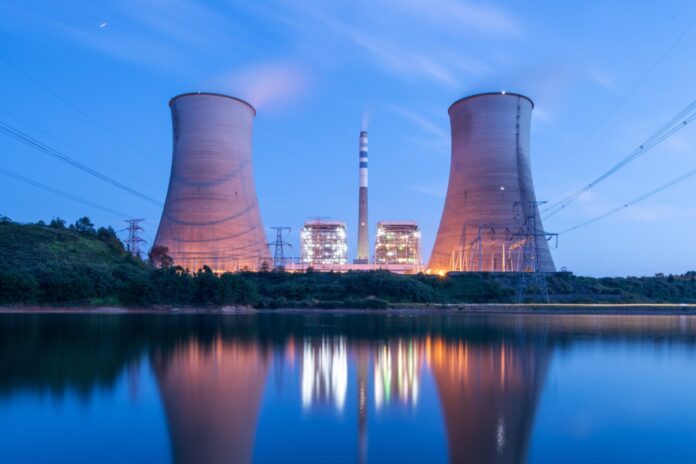The coalition has lifted the lid on its nuclear plans, presenting a list of potential sites for power stations in a move that could make or break its electoral campaign.
With tens of thousands of Australians learning they could be living next to a nuclear reactor, a chorus of opposition grew on social media and talkback radio while Labor came out swinging on the “economic insanity” of the move.
Opposition Leader Peter Dutton’s much-anticipated energy policy will place nuclear power plants in Australia’s former fossil-fuel heartlands if the coalition wins the federal election.
He said a coalition government would build seven plants at existing coal-fired power stations, with the assets to be owned by the Commonwealth.
No costings were provided for the policy even as Mr Dutton said consumers and business were suffering from high energy costs.
The sites include Loy Yang Power Station in Victoria’s Gippsland area, Callide and Tarong in Queensland, Mount Piper at Lithgow in central west NSW and Liddell in NSW’s Hunter region.

The coalition would also build small modular reactors at Northern Power Station in the South Australian city of Port Augusta and at Muja Power Station, southeast of Perth.
“We want to utilise the existing assets that we’ve got, the poles and wires that are used at the moment on the coal-fired power station sites … to distribute the energy generated from the latest-generation nuclear reactors,” Mr Dutton told reporters in Sydney on Wednesday.
Ted O’Brien, who is the Shadow Minister for Climate Change and Energy and is the MP for the Sunshine Coast electorate of Fairfax, was with Mr Dutton for the announcement. He has been a vocal advocate of nuclear energy.
But energy expert Emeritus Professor Ian Lowe, who lives on the Sunshine Coast, believes there are superior options, and locals have previously expressed mixed reactions about the prospect of nuclear energy being produced in Australia and potentially in their region.
Read Sunshine Coast News’ special series on nuclear energy for more, via parts one, two, three and four.
The Australian Chamber of Commerce and Industry said its core policy position was that any energy source should compete in the market while aiming for agreed emissions targets.
“As we go down the path to net zero it is important that we focus on real-world consequences and keep costs minimised for business and the broader community,” ACCI chief of policy and advocacy David Alexander said.
The power plants will form part of an “energy mix” that also includes gas and renewables, which the opposition claims will help provide around-the-clock baseload power and drive down prices.
The first two plants are expected to be completed between 2035 and 2037, as it will take at least a decade from a government decision for nuclear electricity to enter the grid.
This meant Australia could still reach net-zero emissions by 2050, Mr Dutton said.
This is the concept design of a zero emissions small modular reactor.
Nuclear energy has proven to get electricity prices and emissions down all over the world.
But environmental advocates say the plan will delay an urgently needed shift away from fossil fuels, with Climate Council CEO Amanda McKenzie calling it a commitment to coal and gas.
“(It’s) a clear case of radioactive greenwashing and a scheme for more climate pollution,” she said.

Even if the small modular reactors end up cheaper and quicker to build than their larger counterparts, no projects have been completed globally and the CSIRO warned it would be “very unlikely” one would be up and running as quickly as 2038.
Energy Minister Chris Bowen decried the proposal as a “nuclear scam”.
“It’s risky because it undermines investment in renewable energy, it’s risky because it means relying on ageing coal-fired power … which is increasingly unreliable,” he told reporters.
Prime Minister Anthony Albanese said the plan made “no economic sense” and would put Australia in a position of energy insecurity, while Treasurer Jim Chalmers labelled it “economic insanity”.
A report released by the CSIRO and the Australian Energy Market Operator in May revealed a large-scale nuclear power plant would cost at least $8.5 billion.
Minerals Council executive Tania Constable backed the plan, claiming nuclear power would help decarbonise the economy while maintaining its competitiveness.
To assuage safety concerns, Mr Dutton said a 470-megawatt reactor would produce waste equivalent to the size of a soda can, which could be stored on site and moved to a permanent home.
Even if the federal election turns in the coalition’s favour, the opposition will still have to battle it out against the states.
NSW Premier Chris Minns said he would not lift the nuclear prohibition in NSW, Victoria’s government is strongly opposed and Queensland Liberal National leader David Crisafulli – who is tipped win the state’s election – has ruled out nuclear energy.
Like stories that inform, connect and celebrate the Sunshine Coast? So do we. Join an independent local news revolution by subscribing to our FREE daily news feed at the bottom of this article.





